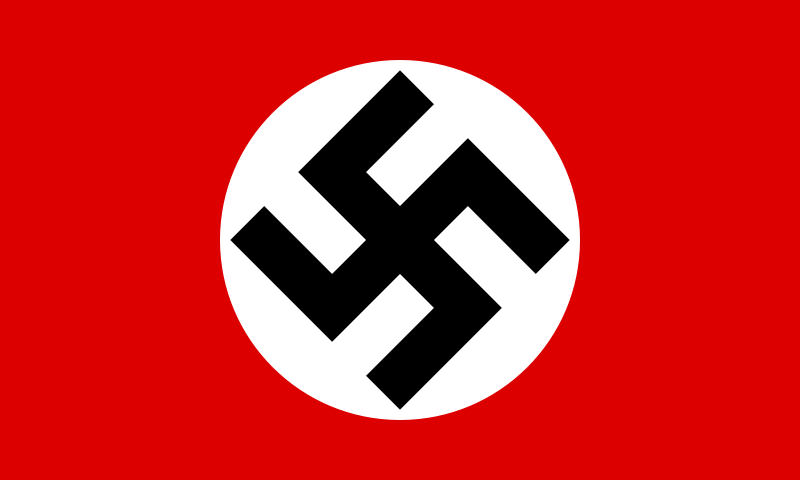Nazi
Germany
Nazi Germany was the period of German history between
1933, year of arrival to power of the National Socialist German Workers Party
of Adolf Hitler and 1945, the year of the country's defeat in World War II that
result the end of the National regime. Using National's own terminology, the
names are also used Third Reich, Greater German Reich, Nazi Empire or III
German Empire to refer to this stage.
The term was introduced by Nazi propaganda, which
counted the Holy Roman Empire as the first Reich, or empire, the German Empire
in 1871 as the second and their own regime as the third. This was done to
suggest a glorious return of the former Germany after the Weimar Republic
instituted in 1919, however, was never officially dissolved by the new regime.
Since 1939, the Nazis avoided using the term "Third Reich" and
preferred to call "Greater German Reich" (Grossdeutsches Reich), in
order to allude to the considerable expansion of its borders that occurred in
1939 and 1940. The Nazi Party attempted to combine traditional symbols of
Germany with Nazi Party symbols, with a single symbol, the swastika, the most
representative of the regime, in an effort to strengthen the idea of unity
between his ideals and Germany.
The National Socialist German Workers Party (German:
Deutsche Nationalsozialistische Arbeiterpartei, NSDAP), better known as the
Nazi Party was the political party led by Adolf Hitler to power in 1933. The
term "Nazi" is a shortened form of the German word
Nationalsozialismus (National), who was the party's ideology. This party was
the only legal political force in Nazi Germany since the fall of the Weimar
Republic (1933) until the end of World War II in 1945, when it was declared
illegal and a criminal organization and its leaders arrested and guilty of war
crimes against humanity and against peace in the Nuremberg Trials between
November 1945 and October 1946.
The head of state, Paul von Hindenburg, was pressured
to compromise with Hitler, who was appointed German chancellor on January 30,
1933. Once in office, Hitler decreed new elections amid intense Nazi
propaganda. Shortly after the election, the Reichstag building was burned. Then
Hitler blamed the communists, suggesting that the fire was the beginning of a
revolution and created panic in order to obtain a greater electoral volume. Finally,
the elections gave him control of parliament, which passed a law shortly after
establishing a dictatorship through democratic means. Hitler imposed since a
government based on the principle of the leader or Führerprinzip. According to
this political principle, the Fuhrer was identified with the people
("was" the people), and he knew and represented the national
interest.
I think that this representation of the people by the
leader was essential because it was in no process of consultation and
delegation of power. The Führerprinzip was replacing an irresponsible
government and powerless (the parliament), and where the responsibility lay
with a single figure. Thus the will of the Führer was transformed into the law.
The application of this principle resulted in totalitarian systems and
repression, and that any opposition to the will of the Führer was, by
definition, unpatriotic.
By: Giovanna Trisoglio
References:
·
CHANTAL
MILLON-DELSOL, 1998, Las ideas políticas
del siglo XX. Paris, Francia. Editorial Docencia.
·
PATRICK O’ BRIEN, 2010, The Atlas of World History. Oxford
University, Great Britain. Oxford University Press.
·
SALVAT EDITORES, 2005, Historia Universal, Tomo XIX. Lima, Perú. Orbis Ventures S.A.C.




No hay comentarios:
Publicar un comentario